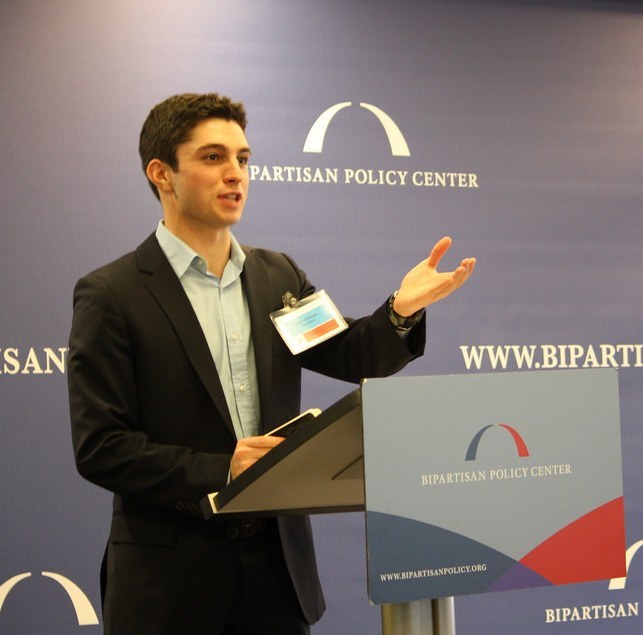Earlier this month, Common Sense Action took action to register over 420 friends, family, and collegiate peers in a 24-hour period across the country. In a three day period, they registered and informed well over 700 voters.
Common Sense Action defines itself as a grassroots organization seeking to expand opportunity for Millennials by "bringing our generation to the policymaking table."
The co-founder and CEO, Sam Gilman believes that organizations like his, No Labels, and Run for America, offer an opportunity for Millennials to shape the future of America. While politics is often viewed as toxic, that does not deter this generation from wanting to participate in their local communities.
This dichotomy towards politics is both good and bad, says Gilman. "The good news is we want to participate in our communities, make the world a better place, and we won't wait for political systems to do that."
One reason politics is viewed as toxic by Millennials requires you to look no further than the current advertising as we near the general election. Whether that includes attack ads, million-dollar campaign narratives from third-parties, or just simply bad candidates, the system protects itself.
We need to look no further than what has been happening in the Pennsylvania 10th District to see the power of this generation.
Resident and co-founder of the non-profit, The Can Kicks Back, Nick Troiano is running for Congress as a pure independent. He did not have to go through the normal primary system as he is running with no party, but the law in Pennsylvania states that anyone like Troiano must secure 3,600 signatures to get on the general election ballot, more than three and a half times the amount required by the Democratic or Republican candidate, according to the Troiano campaign.
"Political apathy among the Millennial generation is largely rational," Troiano said. "Why waste time and effort in a system that is fundamentally broken?"
For most citizens, primaries are just another day for politicians and political junkies. According to the Bipartisan Policy Center, only 101 out of the 435 House seats this past primary season were competitive. Because of this, "politics" often become just more of the same with little opportunity for change.
On a recent road-trip, I stopped in Gettysburg, the location of one of the fiercest battles in the Civil War. A humbling experience, the war itself can guide us all on how to fix a system that appears broken.
"Especially as our politics have become more polarized than any time since the Civil War, it must be a constant reminder of the importance of empathy, bridge building, and collaborative leadership," Gilman said.
A recent NPR article quotes Ashley Spillane, the president of Rock the Vote, saying, "Politics right now is really disheartening. I think it's why you see in the polls that young people are not affiliating with political parties."

Pew Research described the Millennial generation as "unattached to organized politics and religion, linked by social media, burdened by debt, distrustful of people […] and optimistic about the future."
That explains why Troiano has slowly gained more and more support in his House race. While the goal of Troiano is to win the election and become a voice for everyone in the tenth district, Gilman just wants Common Sense Action to drive awareness and engagement among the Millennials.
On the road now with only a handful of days until the election, Troiano is hearing the same comment over and over from this seemingly apathetic and frustrated group: "finally." And since there is not a single member of Congress under the age of 30, it is no surprise that this generation lacks a voice when it needs one the most.
And therein lies the reward. What Gilman and Troiano are doing is changing the conversation. Millennials do care and they do want to change the world.
"Even if CSA never directly changes legislation or swings an election, we will have grown up understanding the importance of bipartisan collaboration," Gilman said.
History is the challenge. In the last midterm election in 2010, less than 25 percent of voters in this group voted. The Harvard Institute of Politics is projecting this year to be even worse.
"Young people must realize that we have extraordinary potential to make a difference in policies if, instead of spinning our wheels in the current system, we re-imagine how politics can work," Troiano said.
The Millennial generation has a lot of reasons to be engaged, however. There is a lack of economic opportunities which can partly be blamed on extraordinary student loans and lackluster job growth. Marriage rates are down. Boomerang rates, or graduates moving back in with their parents, are up.
Troiano and Gilman aren't hanging their heads. Instead, they view this as an opportunity. Gilman says, "I don't think we will be able to close the opportunity, budgetary, or environment deficits that we face until we solve our country's political deficit."


